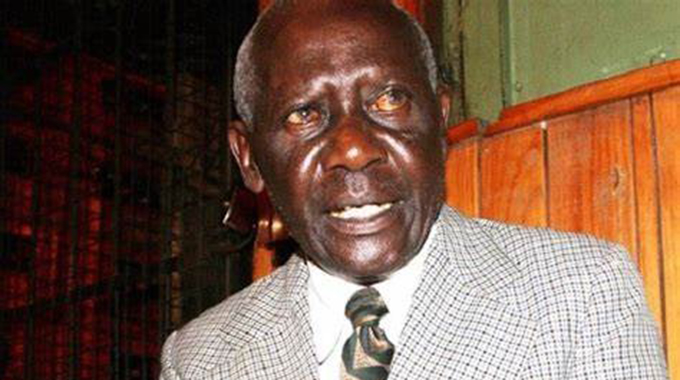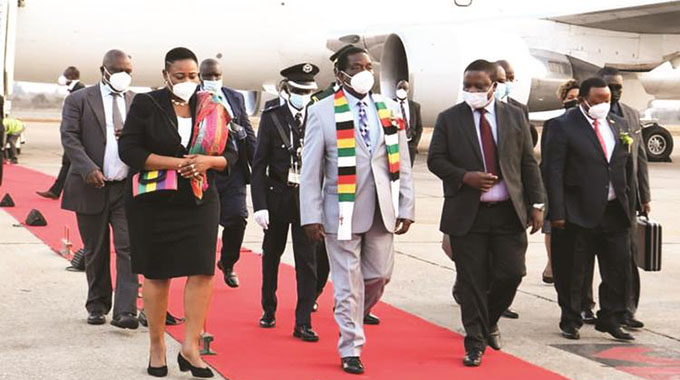Legendary George “Mastermind” Shaya dies

ZIMBABWEAN football legend George Shaya has died.
He was 77.
Shaya passed on early this morning at his home in Glen Norah A, Harare.
Popularly known as “Mastermind”, Shaya turned out for Dynamos during his playing days and he is the only player to be named Soccer Star of the Year five times, a feat never to be eclipsed up to today.
The legendary Shaya is regarded as one of the finest footballers ever to wear the blue and white jersey of Dynamos.
Mourners are gathered at House Number 4538, Mucheke Crescent, Glen Norah A in Harare.
Burial arrangements will be announced in due course.
Shaya, who began his football career at St. Paul’s Musami in Murehwa under Father Davis, was part of the all-conquering Dynamos side that won five of six cup tournaments in 1976 (only losing to Zimbabwe Saints in the semi-finals of the Chibuku Trophy), scoring 67 goals over the season.
In that team, Shaya rubbed shoulders with fellow talented players such as the late goalkeeper Matthew Mwale, Isaac Nhema, Simon Sachiti (late), Shaw “Kojak” Handriade (late), Shepherd Murape, Shadreck Ngwenya (late), Kuda Muchemeyi (late), Daniel “Dhidhidhi” Ncube (late), David “Broomboy” George, Oliver Kateya (late) and Cremio Mapfumo.
He won the Soccer Star of the Year award a record five times in 1969, 1972, 1975, 1976, 1977 before he hung up his boots in 1980, the year that another Dynamos legend, the late David “Yogi” Mandigora won the same award.
Shaya won the Soccer Star of the Year award for the first time in 1969 when his efforts for the national team against Australia were taken very much into account.
He was honoured with his fifth and final Soccer Star of the Year award in 1977 — and his third in succession — at a time when he was at the very peak of his athletic powers.
The football career of Shaya began in the streets of Harare’s high-density suburb of Mbare, where he played from dawn to dusk with a ball moulded out of paper and plastic bags.
In 1980, after 17 seasons of top football in then Rhodesia, the diminutive Shaya was unquestionably the greatest locally produced player the country has known.
As a child, Shaya lived for football. By the time he moved into organised football at St. Paul’s Mission in Murehwa, the street sessions with his friends in Mbare paid dividends — his footwork, playing with makeshift balls, had developed to an amazingly high degree.
At St. Paul’s he played for the school in the Super League and his control and ball skills were of such a standard that he represented the “glamour” club, Dynamos, in senior football at the age of 16. This was the start of a glorious career with Dynamos, the team he eventually later managed.
Shaya gave immaculate service to the club and was rewarded with a benefit match during the 1980 season. With them, Shaya earned the nickname “Mastermind” which accurately summed up his role as a midfield general and creator of scoring movements.
In his own mind, his most exhilarating moment in football was scoring the goal that gave Dynamos the Castle Cup in the 1976 final against Zimbabwe Saints — his skill enabled him to swerve a direct free-kick around the wall of defenders for a remarkable goal. But there have been many occasions when Shaya has put Dynamos on the winning trail.
The Herald football writer, Alan Hlatywayo, who was a former national player, wrote of Shaya in 1976: “When Shaya is out of the game. Dynamos are reduced to an ordinary team. When he is playing, all of the team’s magic is woven around him.”
Others have called Shaya “Rhodesia’s Pele”. Whatever the accolades, there was never any doubt about Shaya’s outstanding ability, which, combined with his power to create openings, made him stand out from other very good players.
Shaya was born in the then Salisbury (now Harare) on Christmas Eve in 1948, the second of 11 children. Although not the eldest, he always seemed to be leading the “Shaya team” as the first-born son. Life was hard but his determination never faltered. It has never let him down on the football field.
One of the notable milestones in Shaya’s career was his selection, at the age of 21, for the then Rhodesian World Cup team which played three qualifying round matches against Australia in the neutral venue of Mozambique in 1969.
After two drawn games, Rhodesia lost the third and that was the last chance Shaya really had of furthering an international football career.
Like the other sports, Rhodesian football also suffered from political isolation.
But he did have a spell with one of the top South African professional clubs, Moroka Swallows, in 1975, and he gained another two international caps for Rhodesia in a series against South Africa in 1977.
After losing the first Test in South Africa 7-0, another honour came Shaya’s way for the second Test at Rufaro Stadium — he was asked to captain the Rhodesian team. Always calm and collected it took him two months to accept the offer of leadership.
“There was no reason. I just wanted to think about it, that’s all,” he said. His team improved dramatically and drew the second Test 1-1 with Shya’s team-mate at Dynamos, Shaw “Kojak” Handriade, scoring the equaliser with a thunderbolt from the half-way line.
John Rugg (acting national coach), had every confidence in Shaya: “He is an experienced player who commands great respect from the others and on the field he leads by example.”
Although small in stature, Shaya always seemed to have vast reserves of energy and more than that, he was a true sportsman.
Shaya holds one record which may never be eclipsed. He was named Rhodesian Soccer Star of the Year on five occasions. He won the award for the first time in 1969 when his efforts for the national team against Australia were taken very much into account. He won it again in 1972,1974,1975 and 1977 to give the football players of the future a really difficult target to aim for — one that proved beyond doubt his consistently high standard over the years. Another honour was his selection as a finalist for the 1976 Rhodesian Sportsman of the Year award. – ZBC Online/Herald Sports Reporter










Comments